The Dictator
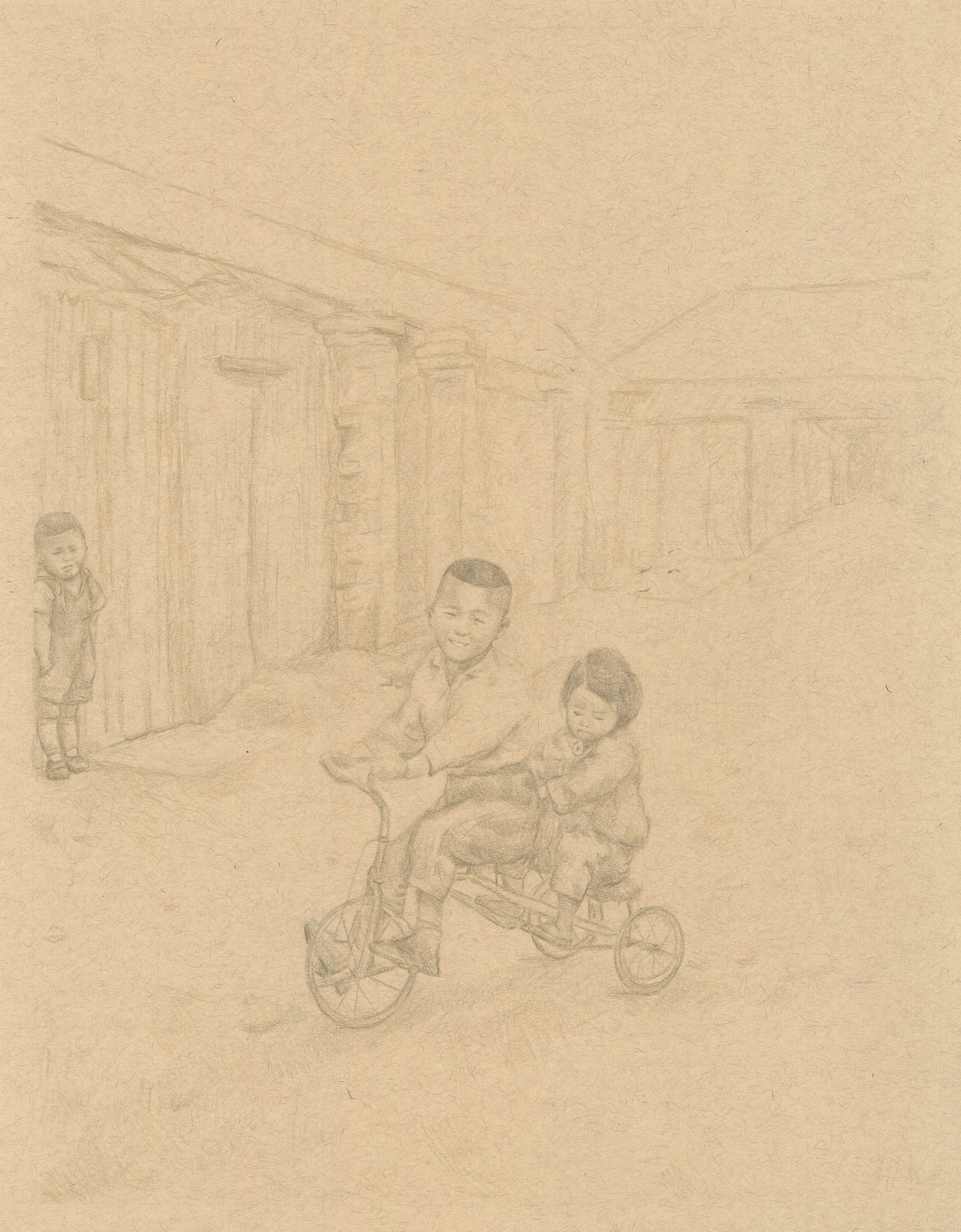
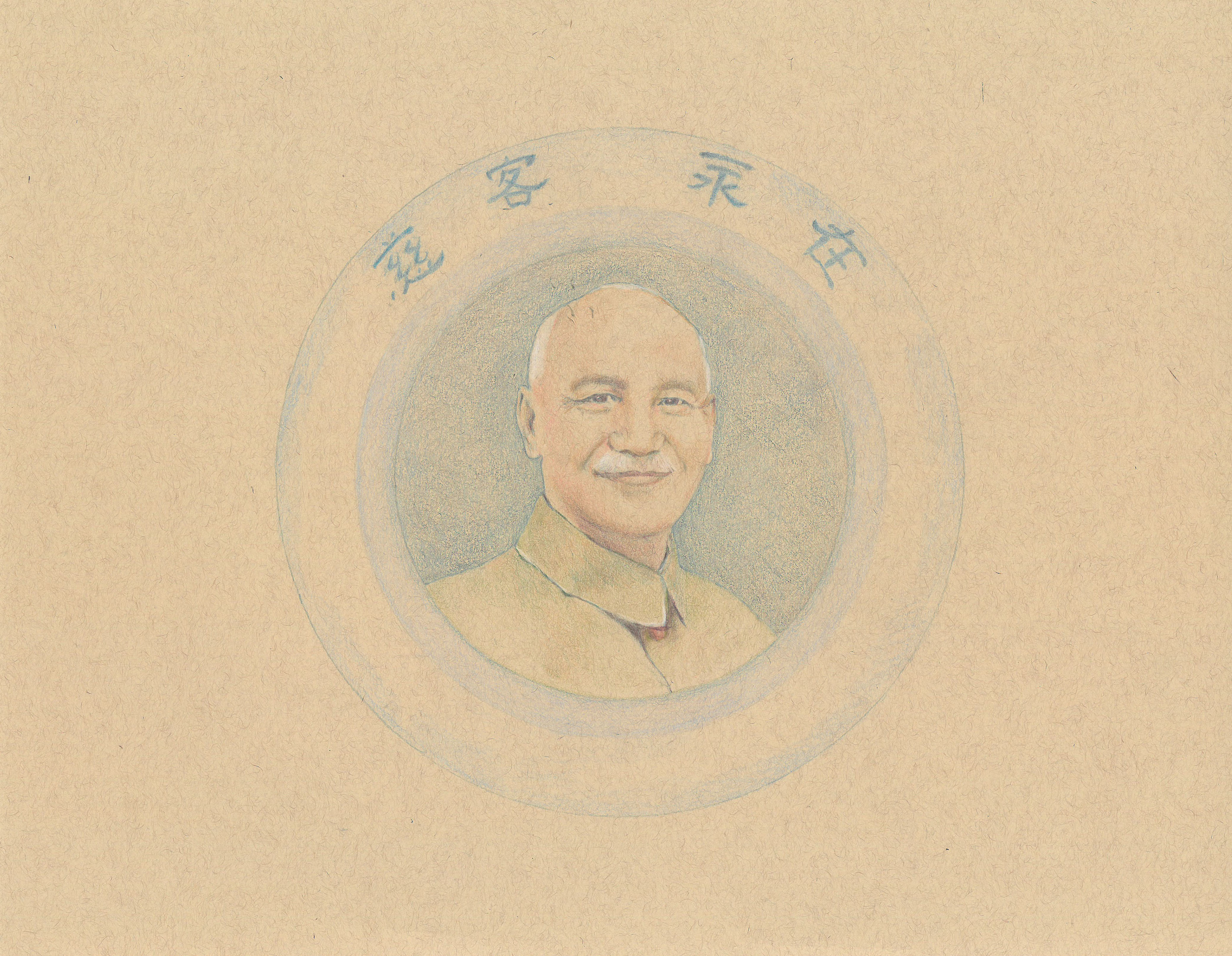
Chin-Jie Melodie Liu, Mud Memories (left)(2020) and You Are Always Welcome (right)(2020),
colour pencil on Strathmore Toned Tan paper (118 gsm), 27.9 x 35.56 cm each.
Chiang was an outsider who abused and dictated our people. The generational trauma created by him has led to benshengren’s distrust towards the KMT. Our family is fortunate to have not been directly affected by his regime. He was just a general, unlike our benevolent founding father, Sun Yat-sen.
In recent years, numerous
Chiang Kai-shek 蔣介石
Chiang Kai-shek (1887-1975) was the President of China (1928-38; 1943-49) and later President of Taiwan (1950-1975), both of which he led under the Kuomingtang Party (KMT). Chiang retreated from mainland China with his troops after the current Peking (Beijing) was seized by the Communists in 1949.
monuments
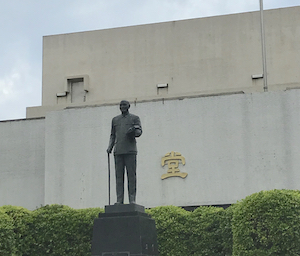
removed

benshengren 本省人
Benshengren, translates to “native of the Province”, referring to the Indigenous Taiwanese population and the descendants of early Hakka and Fujian migrants who resided in Taiwan long before the Japanese colonial rule (1895-1945).
. This stands in stark contrast to the
Kuomintang (KMT) 國民黨
The Kuomintang Party, also known as the Chinese Nationalist Party, was the dominant political party to rule China from 1928 to 1949 after the final imperial dynasty, the Qing Dynasty (1644-1912). The party retreated to Taiwan following their defeat in the Chinese Civil War and ruled the island from 1949 to 2000.
hero many
waishengren 外省人
Waishengren, refers to “people from outside of the Province”, specifically referring to the two million refugees who fled with the Kuomintang Party from mainland China to Taiwan in 1949.
continue to see him as, where they openly display their admiration for him through memorabilia in their homes and businesses
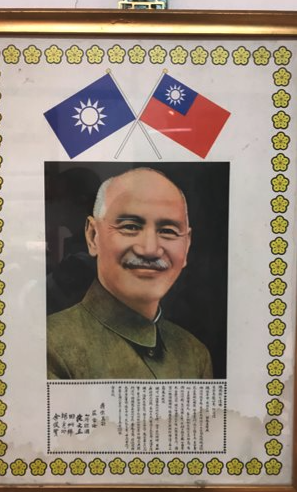
The worship of Chiang Kai-shek was not always voluntarily done as surveillance came with living in a tight knit community of the
military dependents’ villages (juancun)眷村
The military dependents’ villages were established by the KMT as residential quarters to house waishengren, made up of mostly military personnel and their families.
during the martial law. Unwritten rules of self-censorship were followed in every household. This was particularly highlighted during the month of Chiang Kai-shek’s passing which was accompanied by incense burning and worship every morning and night.1 The Madame
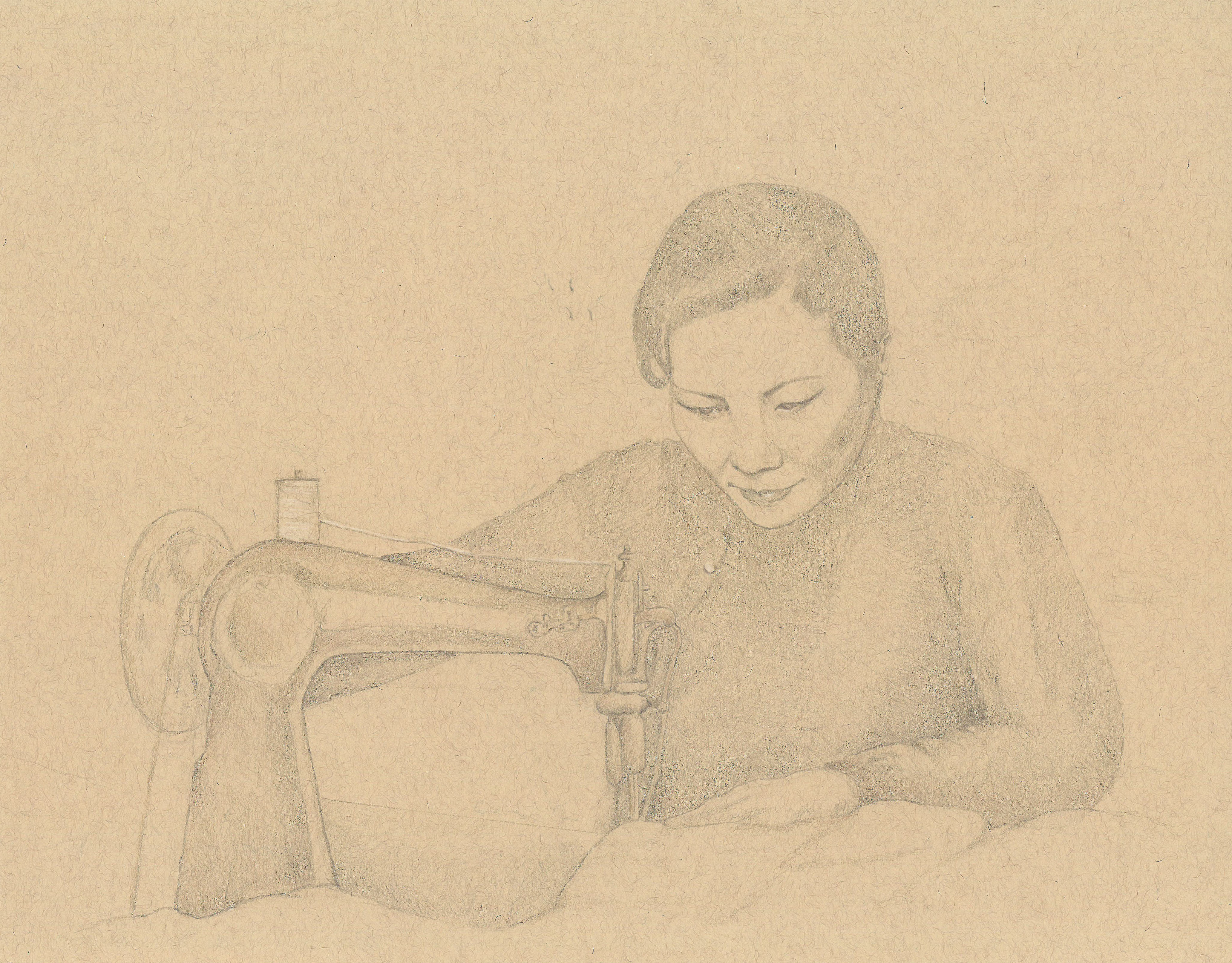
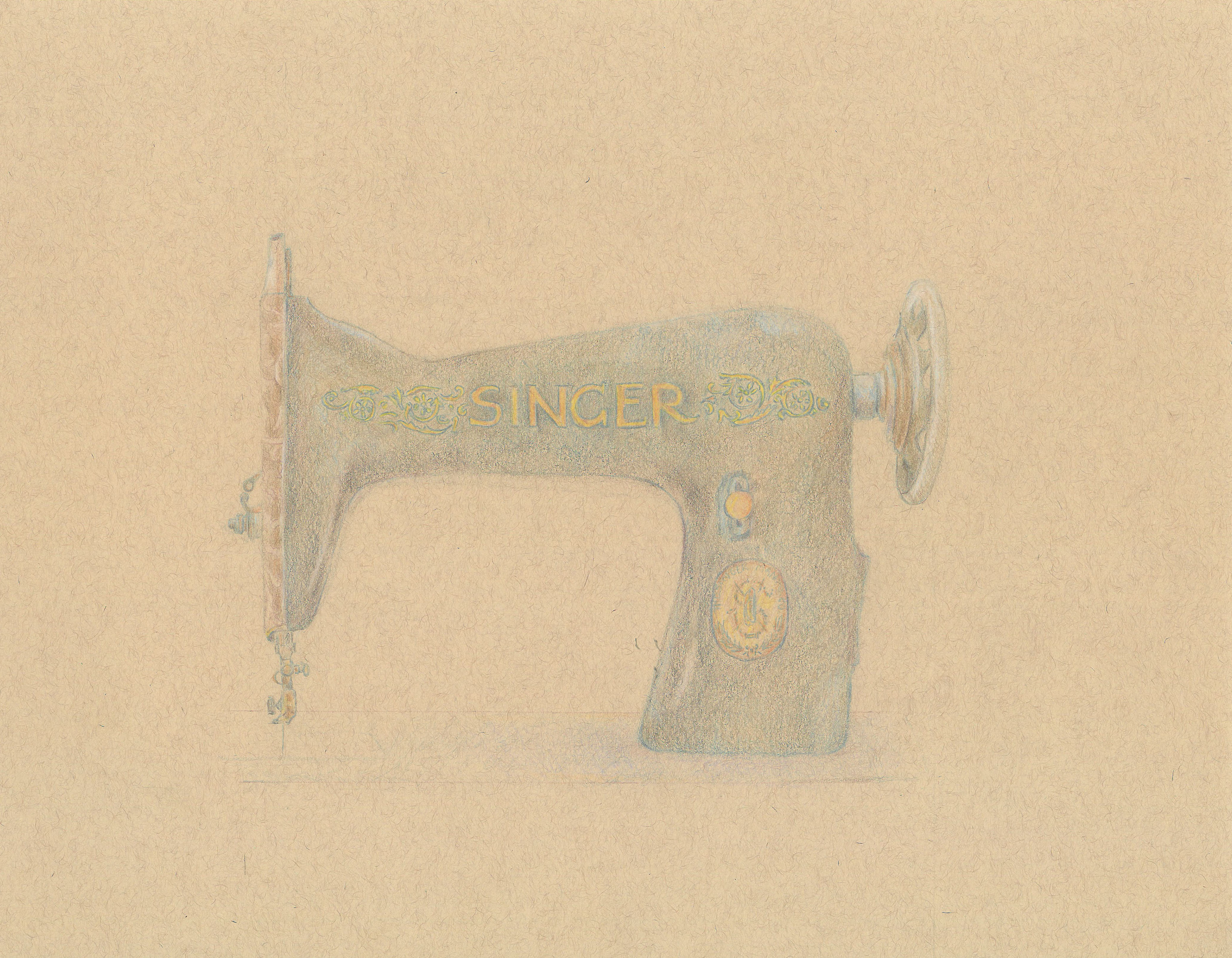
Chin-Jie Melodie Liu, The Madame (left)(2020) and Stitch for the Nation (right)(2020),
colour pencil on Strathmore Toned Tan paper (118 gsm), 27.9 x 35.56 cm each.
Soong Mei-ling was a distant figure who was beyond our reach, as her heart was in China, not in Taiwan. She engaged with the militants and waishengren but did not have a direct impact on us.
Waishengren’s warm perception of
Soong Mei-ling 宋美齡
Soong Mei-ling (1897-2003) was the wife of President Chiang Kai-shek and often referred to as Madame Chiang Kai-shek. Educated in the United States, Soong lobbied support for her husband on an international scale. Her influence was not just political, but also captured the hearts of many waishengren, who continue to see Soong as the nation’s benevolent mother.
came from her involvement

A sewing machine was present in every household in the villages. Due to the extreme poverty magnified by the aftermath of the Chinese Civil War, clothing was created from any spare materials. Military uniforms and parachutes were also sewn by the women in the villages.
The Son


Chin-Jie Melodie Liu, Blessed (left)(2020) and The Son (right)(2020),
colour pencil on Strathmore Toned Tan paper (118 gsm), 27.9 x 35.56 cm each.
Chiang Ching-kuo helped us, he helped our industries and infrastructure. So many people were against him building roads and highways. [But] he had a vision for Taiwan. I would not mind voting for his grandson, Chiang Wan-an
蔣萬安.
At the age of sixteen, my paternal grandmother Wu Yu-he 吳玉和 was one of 400 young women recruited in Nanjing 南京 and Shanghai 上海 in the midst of the Chinese Civil War to join the Women’s Army Corps Battalion (Republic of China) 國防部女青年工作大隊. Also known as the
Hua Mulan 花木蘭
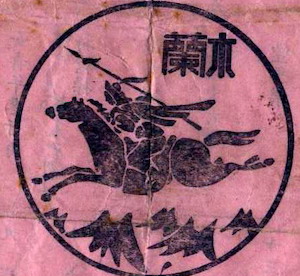
Wu Yu-he was selected to represent the Battalion in the military training opening ceremony to exchange rifles with Chiang Ching-kuo 蔣經國, the son of Chiang
Kai-shek, who assumed presidency in 1978. Although Chiang Ching-kuo represented the violence of his father’s regime, he is held to a higher esteem by both waishengren and benshengren as he was responsible for significant political reforms and the lifting of martial law.
Particularly fond of Chiang Ching-kuo over his father, a laminated photograph of him on a podium can still be found on my grandmother’s piano.
1 See Elisa Tamburo, “Authoritarianism in the Living Room: Everyday Disciplines, Senses, and Morality in
Taiwan’s Military Villages,” Journal of Current Chinese Affairs 47, no. 2 (2018): 156,
doi.org/10.1177/186810261804700206.
2 See “About,” National Women’s League, http://www.nwl.org.tw/info.html.
3 See Tseng Chiung-yeh 曾瓊葉., Teng Kei Hsiung 鄧克雄, and Tseng Hsiao-wen曾曉雯, eds., Oral History of the Women Army Corps巾幗英雄:女青年工作大隊口述歷史 (Taipei: Ministry of National Defense 國防部部辦室), 2005.
2 See “About,” National Women’s League, http://www.nwl.org.tw/info.html.
3 See Tseng Chiung-yeh 曾瓊葉., Teng Kei Hsiung 鄧克雄, and Tseng Hsiao-wen曾曉雯, eds., Oral History of the Women Army Corps巾幗英雄:女青年工作大隊口述歷史 (Taipei: Ministry of National Defense 國防部部辦室), 2005.
